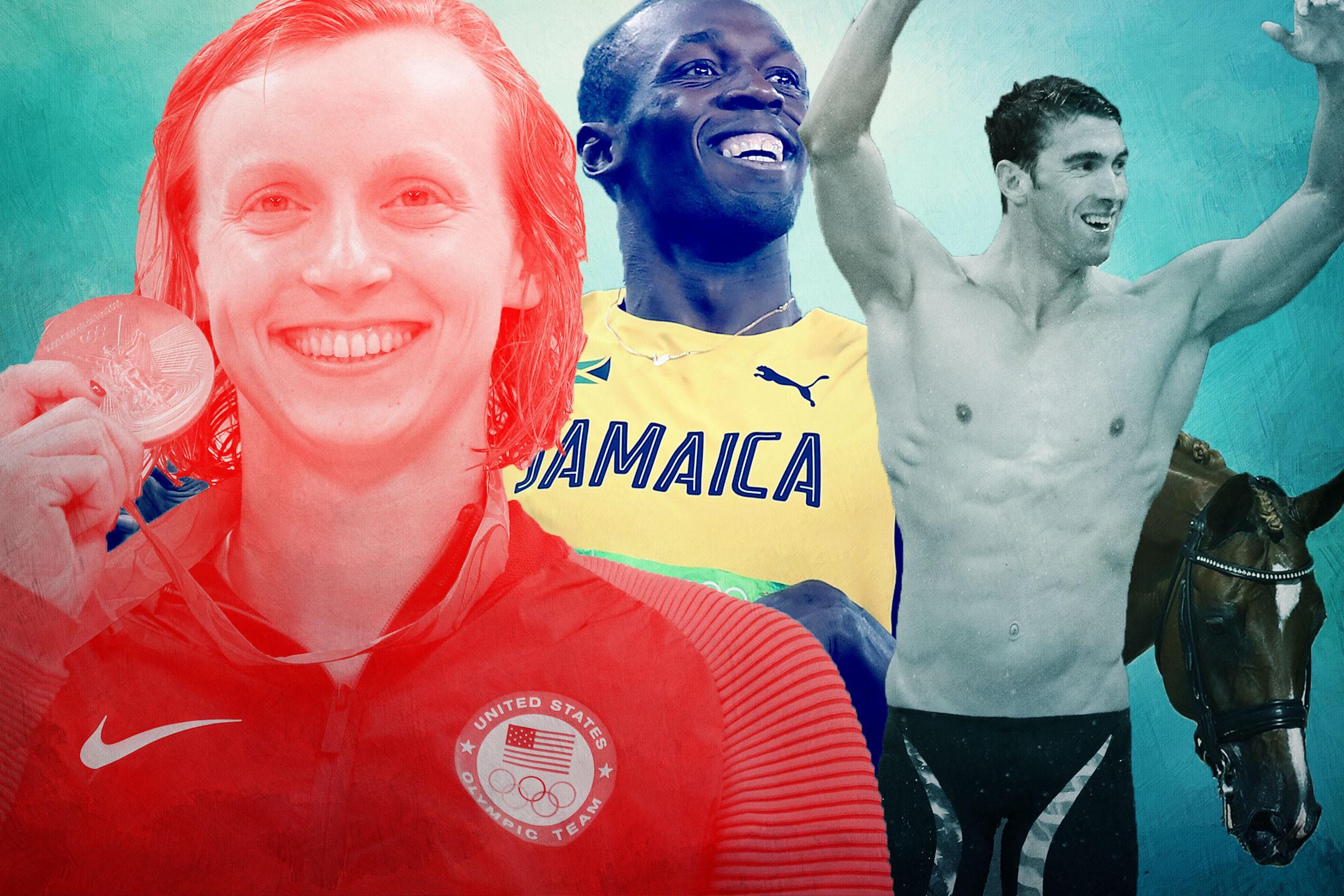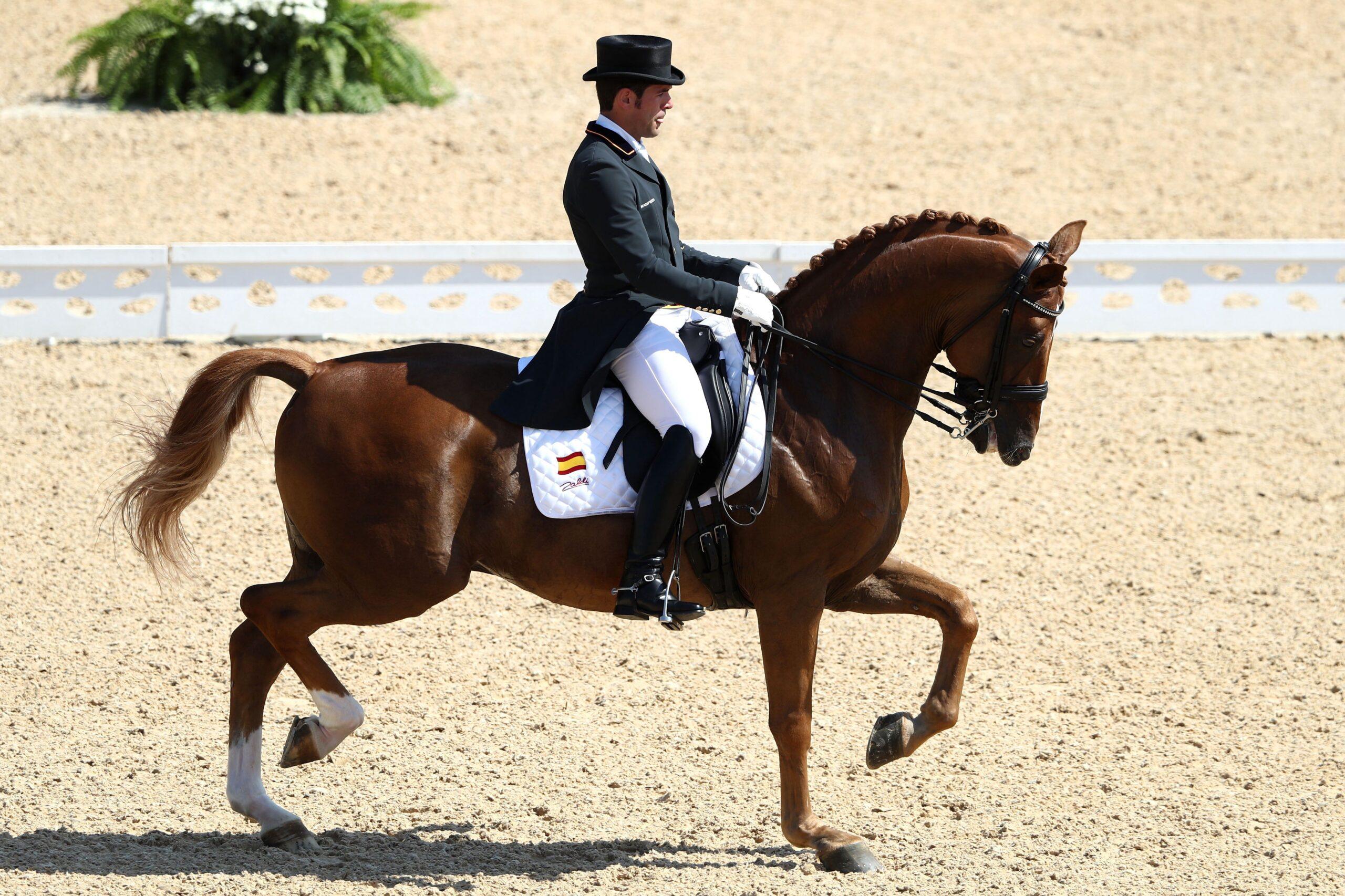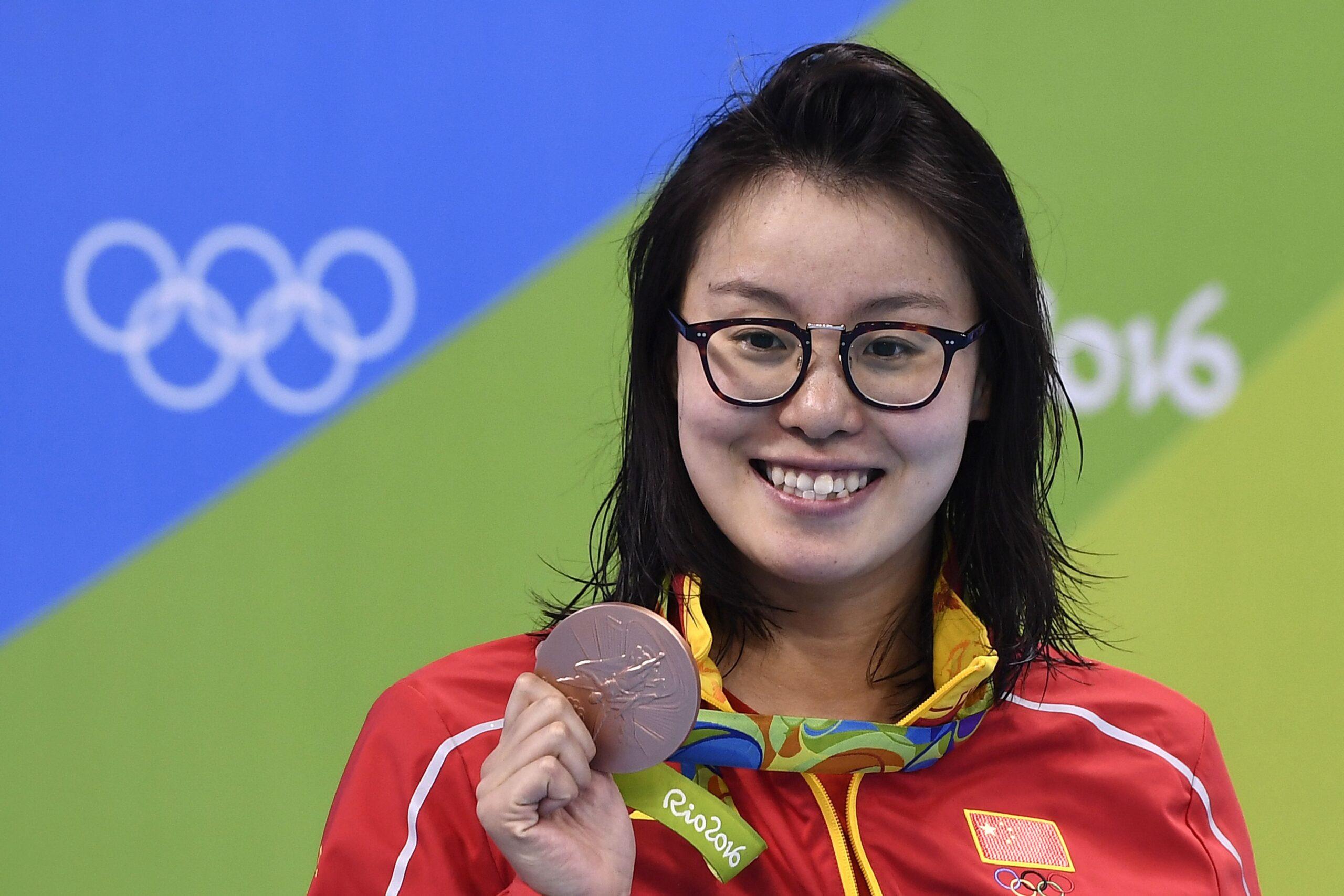Determining the Olympic MVPs
We know (most of) the athletes who are going home with gold — but who was the most valuable in Rio?
The Rio Olympics have been full of dominant performances. Michael Phelps cemented his legacy. Simone Biles crushed her competition. Katie Ledecky was Katie Ledecky. They don’t give out MVP awards in the Olympic Games, but if they did, who would win? Our staff assembled to pick their MVP favorites.
Katie Ledecky
Danny Chau: The world witnessed Katie Ledecky’s superhuman abilities in Rio, but it’s an incomplete picture. Sure, she won gold in the 200-, 400-, and 800-meter freestyle, incinerating world records in the latter two, but her most untouchable event, the 1,500-meter freestyle, isn’t even part of the Olympics for women. She took over the world-record time in the 1,500 as a 16-year-old in 2013, shaving the previous WR time by six whole seconds. Over the next two years she worked another 11 seconds off that time.
But we’ll take what we can get from Ledecky at the Olympics. There is human achievement, and there is whatever Ledecky has laid before us. She had the fastest split of anyone in the pool in the women’s 4x200-meter freestyle relay by nearly one whole second with a 1:53.74, a time that was just a hundredth of a second greater than Ledecky’s gold-medal time in the individual 200-meter freestyle. Most swimmers optimize their times by optimizing their equilibrium: Each stroke is steady and proportionate. In the water, Ledecky throws short left jabs and swings haymakers with her right. Swimming isn’t technically a solitary competition, but the only person Ledecky seems to be concerned with is her own self, and she’s been able to manifest that separation from her competition in the physical space for years now.
Sometimes I wish Ledecky had a signature pre-race visual (critiques are hard to come by when you’re talking about the most dominant athlete on the planet). Michael Phelps’s condor wing slap on the blocks resonates with a grotesque flesh-on-flesh clapping noise that haunts me through the TV screen, to say nothing of the swimmers next to him on the blocks. It’s a sort of taunt that reminds competitors of his anomalous anatomical superiority. Ledecky just does what she does. And she does it so much better than anyone else has ever been capable of doing it.
Yeah, never mind. She doesn’t need to add anything to her routine. There’s no one else in the pool to intimidate.
Michael Phelps
Chris Almeida: “I have no doubt that he could come back and win medals. But at some point enough is enough,” said Bob Bowman, Phelps’s coach, after the swimmer’s performance last week. “Is 25 gold medals really going to be better than 23? I suppose it is. But how much better, and what’s the point? He’s done what he’s done in the pool. It’s time to move on.”
Imagine another athlete’s coach thinking, “Honestly, what does it matter? They have so many of the things that it’s not really worth the effort.” BUT THE THINGS ARE OLYMPIC GOLD MEDALS.
You’ve probably watched a few medal ceremonies over the past week and a half. Think about how happy those people standing on top of the podium have been. Many of them hadn’t won a gold medal before and won’t ever again, but that doesn’t matter because they reached the pinnacle of their sport, an accomplishment that’s worth decades of preparation. Bowman talks about those eternal markers of achievement in the same way that you say, “Nah, I’ve had pizza twice this week, let’s get something else today.” That’s absolutely crazy. Phelps is so good at swimming that he has made winning gold medals into a trivial counting exercise. How could anybody else be the MVP?
Lorenzo

Alyssa Bereznak: If there were ever a living example of the age-old saying “Get you a horse that can do both,” it’s Lorenzo, the noble beast that opened his dressage performance with a slow, sultry trot to “Smooth,” the Grammy-winning 1999 hit featuring Rob Thomas of Matchbox Twenty and Carlos Santana. Aside from Rafalca “I have a Wikipedia page” Romney’s 2012 Olympic appearance, when has anyone who doesn’t own a top hat ever cared about dressage? Never. That is, until Lorenzo and Spain’s Severo Jesus Jurado Lopez inadvertently breathed prime-time life into a well-loved meme that’s been floating around since 2012. Lorenzo’s performance was the perfect accidental collision of earnest Euro flair and sarcastic internet inside joke, so much so that the IOC found itself playing whack-a-mole as GIF after GIF of the horse’s routine popped up online. I honestly have no idea if Spain got a medal for this, and I don’t really care. Lorenzo gave us something more invaluable: the pun “it’s a trot one,” a historic Olympic first.
Carlos Santana and Rob Thomas
Rubie Edmondson: NBC and the IOC are free to close their eyes, plug their ears, and scream, “LALALALA,” to block it out, but 2016 will go down in our collective memory as the first true Meme Olympics. And no one has been more integral to the success of Rio’s social media winners than Carlos Santana and Rob Thomas, the artists behind “Smooth.”
Seventeen years after its no. 1 run on the Billboard Hot 100, the song served as the backdrop to two of the greatest moments of the Meme Olympics. The first was a near-perfect side-by-side video created by Jimmy Donofrio, who noted that Katie Ledecky won the 800-meter freestyle gold by such a margin that you could get to “Man, it’s a hot one” before the second-place swimmer touched the wall (the video has since been taken down). A few days later, we were all #blessed to witness Spanish equestrian competitor Severo Jesus Jurado Lopez and his horse, Lorenzo, two-step to a “Smooth” dressage remix.
Carlos and Rob are the MVPs because they wrote the Rio Olympics theme song in 1999. Let’s don’t forget about it.
Penny Oleksiak
Michael Baumann: My Olympic jingoism is as ugly as anyone’s, but I do wish we’d get more coverage of non-American Olympians in the American press, because in American-dominated sports like swimming, you’ll see three types of athletes on the medal stand: the American heroes, the foreign — usually Eastern European — bad guys (Yulia Efimova and Katinka Hosszu in these Olympics), and everyone else. And sometimes, someone from the Everyone Else bucket walks away with a fistful of medals without anyone ever bothering to find out who he or she is.
This year, Everyone Else was Penny Oleksiak, a 16-year-old Canadian swimmer who took gold in the 100-meter freestyle (in a tie), silver in the 100-meter butterfly, and bronze in each of the freestyle relays. Factor in the exchange rate — Canadians celebrate bronze medals the way we Americans celebrate, you know, actual victory — and that’s Mark Spitz’s 1972, Michael Phelps’s 2008, and Janet Evans’s 1988 all rolled into one Olympics. And despite having watched roughly 400 hours of swimming interviews in the past two weeks, I’ve never heard Oleksiak speak.
If Oleksiak had been born on the other side of Lake Ontario, she’d be this year’s Missy Franklin, and all we know about her is that one of her older brothers is a defenseman for the Dallas Stars, which is kind of like if the only thing you knew about Kobe Bryant were that his dad had played in the NBA for a while.
So I salute Penny Oleksiak, because nobody on this side of the border has bothered to do so.
Usain Bolt and Andre De Grasse
Caitlin Blosser: It must feel pretty incredible to be so fast that, with 50 meters still left in a race, you can bust out a smile because you know just how much better you are than the guys behind you. Grinning their way to the finish line of a 200-meter semifinal, Jamaica’s Usain Bolt and Canada’s Andre De Grasse gave us the Batman-and-Robin pairing we never knew we wanted. Bolt is like, “You’re still not as fast as me, but we can still laugh and be friends.” Athletes are usually hyperfocused, so watching De Grasse and Bolt have the freedom to smile during an Olympic race and enjoy an adorable, superhuman bromance was a breath of fresh air to those of us watching at home.
Shelly-Ann Fraser-Pryce
Carl Brooks Jr.: Shelly-Ann Fraser-Pryce isn’t the fastest woman in the Olympics, but the 29-year-old is the leader of Jamaica’s women’s track-and-field fleet, which has pulled down four medals (two gold, two bronze) in Rio thus far. Fraser-Pryce graciously accepted the bronze medal in the 100-meter dash, saying she felt honored that her training partner and fellow Jamaican Elaine Thompson took gold. She followed that up by torching the first-round field as an anchor in the 4x100-meter relay for Jamaica, which is competing in the finals Friday night.
Fu Yuanhui

Kate Knibbs: Chinese swimmer Fu Yuanhui didn’t win a gold medal at the Olympics, but she won my heart for telling the truth about why it can suck to be a woman athlete. “My period started last night,” she told a reporter in Mandarin after the 4x100-meter medley relay, which China failed to medal in. “I’m feeling pretty weak and really tired, but this isn’t an excuse.” When she finished third in her 100-meter backstroke semifinal, she said it was because her arms “were too short” but that she was “so fast.” Where is the lie? In an Olympics where the most heralded male swimmer’s most famous moment was a terrifying death stare, Fu competed with unbridled, contagious joy. And she has cool glasses.
Telling the truth at the Rio Games is known as a “Reverse Lochte,” and Fu KILLED IT. She deserves our unwavering devotion.
Gary and Paul O’Donovan
Gabe Fisher: Nothing has brought me more joy or entertainment in these games than these Irish brothers and rowing partners, Gary and Paul O’Donovan, recapping their shenanigans after winning a silver medal.
This is the gold standard for the post-match interview. Cork accents aside, the brothers riff off each other on topics ranging from peeing in cups to pizza delivery to their post-race meal of “a bread roll with some Nutella.” They’re J.R. Smith’s heir apparents in the arena of post-victory celebrations.
They may have come in second in men’s lightweight double sculls, but they won our hearts.
Mortality
Lindsay Zoladz: During these games, I’ve been haunted by two images that have been circulating around the internet. In the first, taken at a 2008 Olympic training camp in Singapore, a gawky 13-year-old boy with glasses and braces stands next to his hero, Michael Phelps; he comes up only to the swimmer’s shoulders. In the second, a nervously smiling red-headed girl poses with Phelps at some kind of Speedo-sponsored meet-and-greet as he’s getting ready to sign her poster. The boy was Joseph Schooling, now 21, who last week beat Phelps to win gold in the 100-meter butterfly. The girl, of course, is the young god Katie Ledecky, who, at the accomplished age of 19, now stands next to Phelps on the current cover of Sports Illustrated.
The thing that freaks me out about these images: Michael Phelps looks the same as he does now. I am perfectly aware of the #Science behind this; of course people age more dramatically during their teens than they do in their 20s and 30s. But still, it all feels like a dark, admittedly much clunkier revision of Wooderson’s mantra from Dazed and Confused: “That’s the thing about these swimmers that reminds me of my own impending death, man. They get older, but Michael Phelps stays the same age.” It’s like if LCD Soundsystem’s “Losing My Edge” were about competitive swimming instead of knowing about cool bands. The kids are coming up from behind!
The Olympics are all about mortals achieving immortal things. That Schooling was able to beat Phelps and Ledecky cemented her status as the most dominant swimmer alive were, to me, bleakly comforting reminders of Phelps’s mortality — and thus the astonishing weight of all that he’s achieved. It’s easy to forget that Phelps is human; I more often subconsciously file him under “sea monster” or “Channing Tatum–esque merman.” But nah, we’re all playing on the same cosmic team, linked by the cruel passage of time. Thanks for this dark but ultimately reassuring existential reminder, Olympics!

